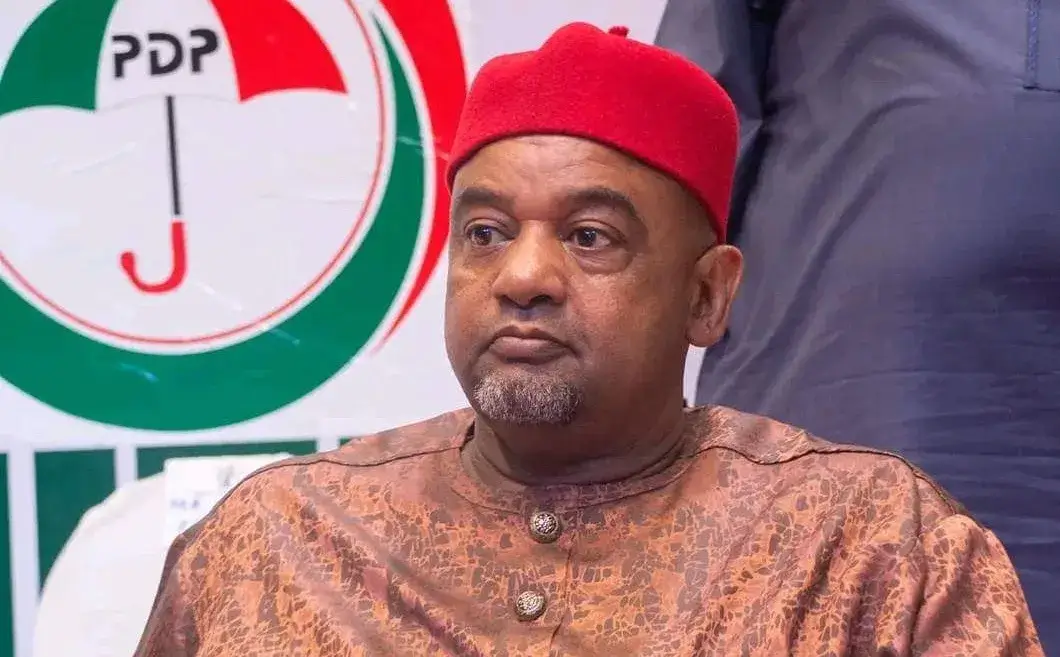ARTICLE AD
President Bola Tinubu has called on the media to hold both elected and appointed government officials accountable in a way that would strengthen Nigeria’s democracy.
He made the call at the 20th edition of the All Nigeria Editors Conference in Yenagoa, Bayelsa State.
Tinubu, who made the call on Thursday, was represented by the Minister for Information and National Orientation, Mohammed Idris, at the conference, which had the theme: Economic Growth and Development Strategies in a Resource-Rich Country.
He stated that the roles of the media and government are intertwined and must be carried out in a spirit of mutual respect and collaboration, aligned to achieve common goals.
“In any thriving democracy, the roles of the government and the media are intertwined, both essential in serving the public interest. Of course, the media has a duty to hold elected and appointed officials accountable and ensure that we are doing our work in a manner that strengthens democracy – not weakens it. That important work must be done in a spirit of mutual respect and collaboration, not recrimination and opposition; this alignment enables us to achieve common goals that benefit society at large,” Tinubu said.
The president emphasised the need for both parties to see each other as allies in nation-building, creating an environment where transparency, accountability, and mutual respect can thrive.
“By viewing each other as allies in nation-building, we can create an environment where transparency, accountability, and mutual respect thrive. Together, the government and the media can empower citizens, strengthen democratic institutions, and build a more informed and resilient society,” he said.
Regarding the conference’s theme, Tinubu noted that despite Nigeria being endowed with both human and natural resources, the pressing question remains: how to “translate these resources into meaningful growth and development.”
He explained that his administration had spent the past 18 months laying the foundation for a prosperous nation and went on to enumerate some of his achievements during this period.
Also speaking, Bayelsa State Governor Douye Diri acknowledged the significance of the media in democratic governance, noting that the media’s importance has been recognised since the 17th century. He pointed out that democracy relies on the media to thrive.
Diri stated that the media serves as a beacon of hope, promotes understanding and unity, and that its role as guardians of truth was especially critical in “these turbulent times both in our nation and around the world.”
He also emphasised that integrity is the cornerstone of the profession, which builds trust with the public and fortifies the foundations of a healthy democracy.
Diri described the conference theme as “both relevant and timely,” adding that “we find ourselves at a pivotal moment in Nigeria’s journey toward sustainable development. Our nation brims with abundant resources, yet poverty and underdevelopment persist across countless communities: a striking paradox.”
The Chairman of the conference and the chairman of Arise News Group, Nduka Obaigbena, challenged the Federal Government to put the four government-owned refineries in the country to work in order to curb the activities of the oil mafias.
Obaigbena said, “If we are going to use whatever means to deal with the oil mafias, we should keep our refineries alive. If you say you want to stop the monopoly, then our four refineries must work. Let those four refineries compete with Dangote Refinery.”
He further challenged the Minister of Information and Bayo Onanuga to ensure the refineries are operational. “Everybody is feeling the pain in the country. The time is hard, but Nigerian journalists are tougher, so you have to be tough to cope with the times.”
“I can see that the future can be better if we give Tinubu’s reforms a face. We should support the reforms, but we must ensure that the vulnerable are supported. We are ready for the change, but the first step is to put our house in order. Let us fix Nigeria. That is the first thing to do, and let’s also work hard to protect our industries,” Obaigbena added.
The President of the Nigeria Guild of Editors, Mr Eze Anaba, said that the availability of resource materials is the biggest threat to media survival in Nigeria.
Anaba stated that decisions made by editors are critical to national development, noting that national economic growth directly influences every sector, including the media.
He said, “Media organisations face mounting pressure to adapt to modern trends while staying financially viable and maintaining journalistic integrity. Now, we think the only challenge facing the media will be adapting to modern trends. But the biggest threat to media survival today is the availability of resource materials to produce our papers or to broadcast on our TV stations.”
Former Governor of Ogun State, Olusegun Osoba, called for a committee to look into the crisis within the Nigeria Union of Journalists (NUJ) over the issue of tenure for the present leadership, saying editors are the only united group after newspaper proprietors, that could resolve the crisis.
He said, “Before you leave, I want you to set up a committee to look into the crisis brewing in the NUJ. They are supposed to hold their annual conference, but some people are saying that the president has overstayed his tenure, and they took him to court. You are the only united group after the NPAN to intervene in that crisis brewing in the NUJ.”
Keynote speaker, the President of the National Chamber of Commerce, Industry, Mines, and Agriculture, Dele Kelvin, said that one of the greatest challenges confronting the nation is the mismanagement of oil and gas resources.
He also highlighted the poor management of the exchange rate and the federal government’s decisions made without stakeholder involvement as key issues troubling the economy.
Kelvin said he was not fighting anyone but urged participants at the conference to ask questions.
He sad, “You are editors. You should be asking questions, especially if what was going on was detrimental to national development.”

 2 weeks ago
9
2 weeks ago
9 

